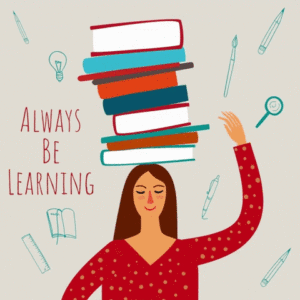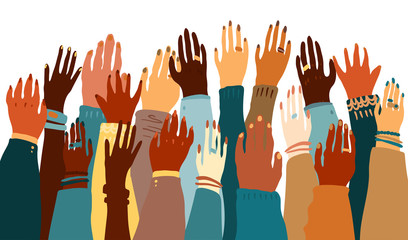Curiosity List
The world is filled with so much mysteries
It’s impossible to know everything
That doesn’t mean that our mind still doesn’t wander around
Starting with why is it that when you look up at the clouds they are all different
And how the clouds fade away and make the bright stars appear that allows us to see
Why is that grass is so green in some areas, and dark in others, and softer and harder than other areas?
How come there are days where the shy is happy and lets down its rays of the sun and other times when it’s hurting it let downs its tears
What lays beyond the sky, is there truly a universe, and is it anything like the picture we see
Sometimes I just stare out the window and see the people walking and wondering how everything moves and works effectively, and how it all came to be.
Staring at the trees and asking myself how long it took for it to grow
From my apartment, I can see the train platform, I see all these people coming on and off the train and I start to wonder where did they go, or where are they going
Then look at the train itself and wonder wow as those things exist but how and who was so smart enough to make this happen
Just behind the train, there are buildings, tall ones and shorts ones, but how did they come to be
The history behind the very building I am in, and who lived and stared through the same window I am right now
How everyone eats but who and where did these food start from, how did they come to be
Cooking is like chemistry and math you have to add the right portion of each ingredient to make the food taste good but who decided this and how did it come to be
How people were so creative enough to invite so many gadgets to help us sound the house and kitchen such as washing machines, dishwasher, different types of spoons and so on
How all these formulas and rules are in place for everything but how did they come to be
But the biggest wonder is how every time you see someone weather that is on the street or your phone or anywhere they are thinking of something different and how they are living out a completely different life than yours
It amazes that no two minds think a lot and how we can’t tell what other people are thinking
There’s also the fact that we sleep and we all have dreams but we can’t recall them in the morning, and how is it that you can only remember some
There’s so many more curiosity that runs in my mind but sometimes we forget those too
The Walk with the Moon
Following the light from the moon
I stroll along the long narrow sidewalk guarded with cars
Surrounded by stores and houses and car engines roars
When I get to a stop to check for traffic
A car comes out of nowhere and starts honking
The loud noise scares me and I ran to the other end
Stopping to catch my breath I canceled out everything
The only thing I heard was my heartbeat
I started walking again and heard loud music coming from a nearby store
I started heading towards the loud music
As I was walking through the loud music I see people laughing and eating
I guess I was staring for too long one of the guy that was sitting looked back at me
I quickly walked away, and the music faded
As I walked along the stores and road I read names and signs out loud in my head
I quickly approached a mini-park, with just benches
When I smelt an odd odder
I saw a couple of guys sleeping on the benches
So I quickly and quietly walked passed them and headed towards the bright lights
As the lights got brighter my steps got heavier
I stood along the edge of the sidewalk against the bright lights from the big stores
I could feel the lights on my skin, the signs flashing everywhere.
The streets were more crowded strangers just walking past you
For awhile I was just walking and looking at other people and figuring out their styles
At the corner of my eyes, I see this glistening light
When I turned to look I realized it was a full moon along with the stars
As I was looking high up I came across a billboard
It was a digital clock with temperature
I waited for the time to come and was shocked when I saw how late it was
It was like I got sucked into the time
I quickly turned back and walked the same way I came
I walked passed the bright lights from the store
The mini-park with the strangers sleeping on the benches
And the load music playing from the restaurant
Until I finally arrived in front of my building
Just before I walked in I saw the same glistening light at the corner of my eyes
I slowly turned and looked up at the sky
Except for the moon wasn’t there
I turned the other way to see the moon had moved along with me
I saw the moon one last time before heading back in one last time
Song to Story
Song: you broke me first by Tate McRae
I thought he would be the one; I thought he would be the one to understand my feelings. I thought he cared about me, and that we bought the best out of each other. But that was before I knew how he was. Before you got distant before you stopped sharing things with me before you were thinking about some other girl. Even then I made up excuses for you, made up crazy things that could not possibly be why you haven’t been responding to me or ditched me. Then I suddenly realized that you weren’t good, you didn’t want me. You didn’t feel the same about me. Everything you felt about me was just temporary. Even though it was hard for me to get over you, a petty part of me thought maybe you lost your phone or your phones have been off for a couple of months.
A couple of months later you called me back, asking if you could do anything you can do to go back to what we had. But I knew you were like this when things don’t go your way, you ask me for me to fix it. Me being who I am, I did, I tried. But I am finally over you, but you are suddenly asking for me back. But all I could think about was where d’you get the nerve to even ask that, even if you miss all that we had, why now? What made you remember, what made you realize. And so conveniently after I moved on from you. So I don’t care how bad it hurts, you can finally realize how much it hurt for me. You are the one that made me like this when you broke me first. You broke me first, I finally know that I deserve better, that I’m happy without you and thankful that I got out of this toxic relationship. Because for months, you were apart, and you were having your fun with someone else.
I kept telling myself that you’d come back. I was in denial when I first heard that you moved on faster. I didn’t think you could move on that quickly, that was hard for me to see. It hurt seeing you happy with someone else right after you were together. Cause even then a brief part of me thought that was just a way for you to make me jealous, and that it was just a joke, it was all a prank. So I would wait for your name to pop up on my phone or text. Waiting to see you and your next move. To just hear your voice, to just hear you apologize. But I learned that you would not come back, you have truly moved on. But now that you want me back I’m speechless this is all I wanted for a while, all I needed to hear to go back to you. But I’ve moved on from all of your mistakes and all the actions you did after we broke up, made me realize that you are not worth it. Now you are just running back to me because you have no one, and maybe you realized that I was truly the one person who cared for you. You are coming to me with all your problems thinking I can solve them. But I won’t.
I’m done making excesses for you, I’m done dealing with your baggage, I’m done being ignored, and I’m done being with you, and having to do anything with you. It was dumb of you to think I could take you back, maybe the old me would have taken you back. Now I just think how did you have the audacity to even ask. It doesn’t matter what you have to say now, all the sweet things and all the sweet memories we had, have said them before you did the damage. Before you broke me into pieces, making me question myself when it was all you not me. You didn’t even think twice before you hurt me before you broke me. So now you have yourself to thank for making me broken. Hard to imagine what you thought was going to happen after you purposely hurt me. Did you think that taking nice and remembering old memories of us was all that it’s going to take for us to be together again? After everything you made me go through your thought, I would open to you with a hug. If that’s the case then you were mistaken. I am better without you, even though you made me broken, a life without you is still better. All I have left to say to you is that “you broke me first.”







